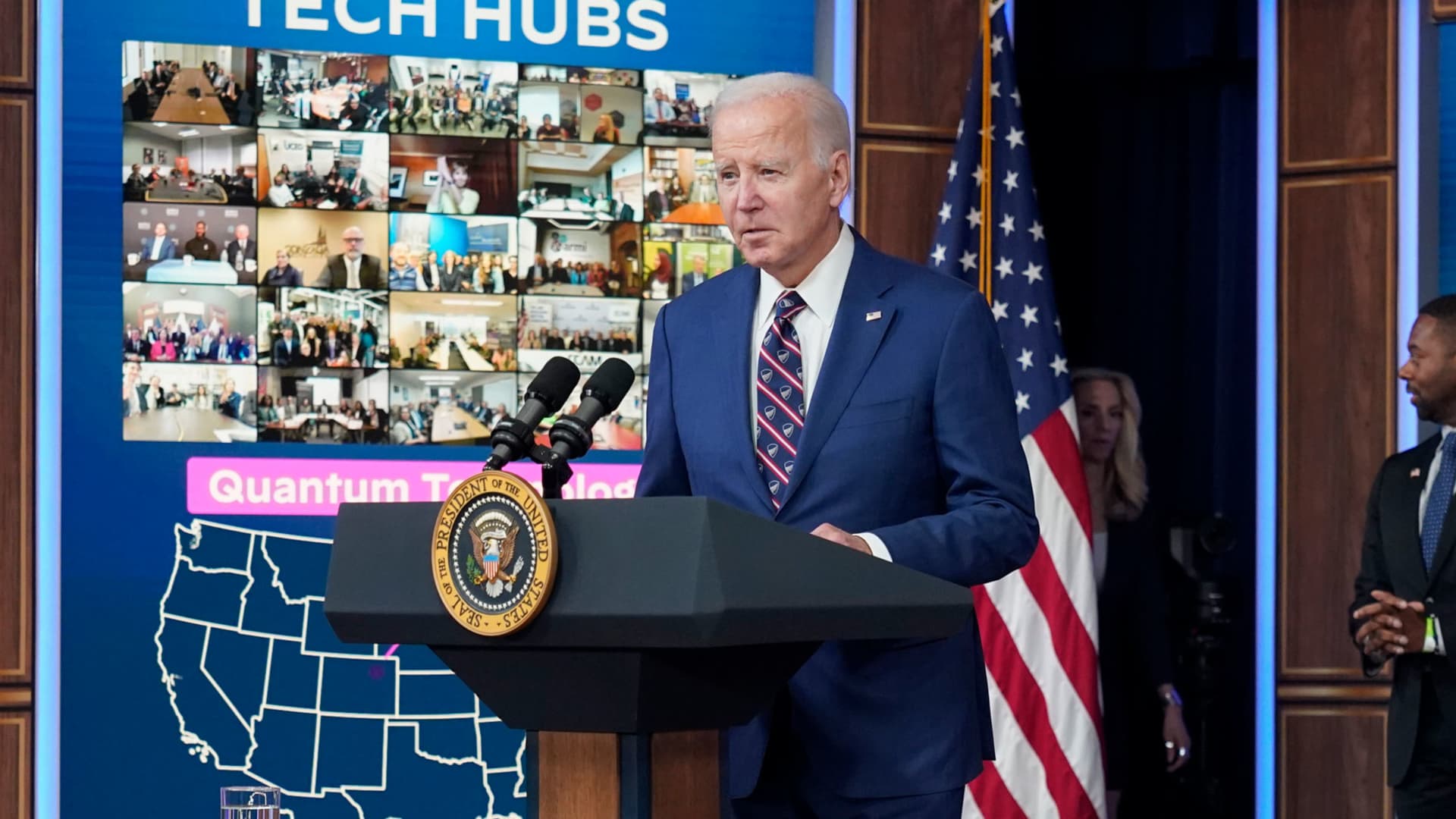- The Biden administration on Monday named 31 regions spanning 32 states and Puerto Rico as technology hubs, a move by the White House to spur private investment and create jobs.
- President Joe Biden announced the move alongside Commerce Secretary Gina Raimondo.
- The creation of the tech hubs was authorized through the CHIPS and Science Act.
WASHINGTON — The Biden administration on Monday named 31 regions spanning 32 states and Puerto Rico as technology hubs, a move by the White House to spur private investment and create jobs.
President Joe Biden announced the program alongside Commerce Secretary Gina Raimondo. The creation of the tech hubs was authorized through the CHIPS and Science Act, which Biden signed into law last year. Raimondo in May announced the launch of the tech hub program with the aim of dispersing $500 million in grants.
“Over the past few decades these communities have lost more than jobs. They lost their sense of dignity, of opportunity, their sense of pride,” Biden said. “We’re going to change all that. Tech hubs are going to bring this work to where people live in communities all across America.”
The goal is to spread technological innovation across the country rather than have it centered primarily in cities like San Francisco, New York, Boston and Austin.
The hubs are focused on fostering innovation across industries including clean energy, artificial intelligence, semiconductors, biotechnology, medicine, quantum computing and critical minerals. Regions selected for the hubs span the entire U.S. and include Oklahoma, Massachusetts, Colorado, Ohio, South Carolina, Washington, Alabama and Pennsylvania.
“These tech hubs will be transformational and they’re a part of a long line of transformational investment we’ve made since I took office,” Biden said. “And as a result, I truly believe this country is about to take off, because for the first time in a long time we’re investing in America and we’re investing in the American people. We’re investing in our future.”
The regions selected for the program were chosen from over 370 applications across 49 states and four territories, according to the White House. Nearly 75% of the hubs are centered in small communities and rural areas and more than 75% supporting what the White House deems “historically underserved communities.”
Designees are able to apply for up to $75 million in federal funding, but because only $500 million was allocated by Congress, most will not receive a grant.













